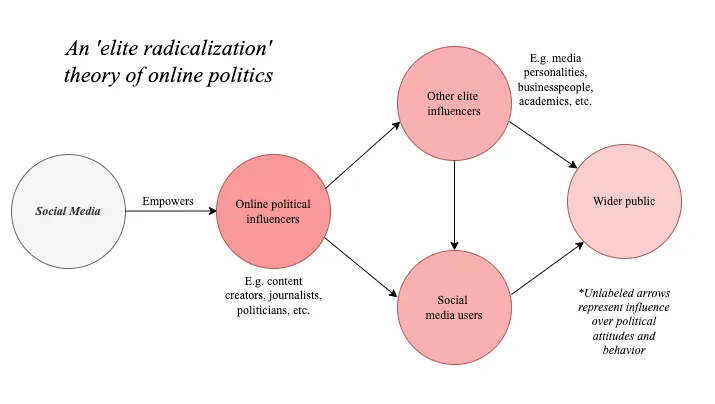Fediverse vs Purity spirals?
When I say that on the fediverse and in progressive movements in general “we divide ourselves to be conquered” it is based on the observation how willing we are to bash each other’s heads in, based on the slightest ideological differences, or in many cases just by misinterpreting someone’s 500-char toot. The discussions that follow are very aggressive and often lack any nuance whatsoever. This creates purity spiral dynamics whereby influencers and peer pressure demand conformance to the ideologies in the various in-groups, which drive themselves further into extremes in a vicious spiral of radicalization.
Well-meant activism for activist causes that are worth fighting for, risks becoming ineffective or even backfires. As part of envisioning a future peopleverse, on SocialHub, I introduced the concept of CALM Culture. “Constructive activism-led movements” take a structured approach to ensure worthy activist causes become well embedded into the processes of healthy movement formation and foster online culture that is tolerant for a certain ‘ideological bandwidth’ as requirement for a diverse and inclusive social web.
See Fostering CALM culture in the discussion topic about shared (technology) vision for the fediverse.
Social media vs Affective polarization?
The paper published in 2019, “The Origins and Consequences of Affective Polarization in the United States” by Shanto Iyengar et al, had mixed findings and mentioned further research is needed. Some quotes regarding social media…
The high-choice media environment and the proliferation of partisan news outlets are frequently blamed for the current polarized environment (e.g., Lelkes et al. 2017). The argument is that partisan news activates partisan identities and consequent feelings toward the political parties. One feature of any social identity is that, in order to fit in with the group, identifiers must adopt the attitudes of prototypical in-group members (Hogg 2001). Partisan outlets—many of which depict the opposing party in harsh terms, often comparing out partisans to Nazis and Communists (Berry & Sobieraj 2014) and focusing disproportionately on out-party scandals (real or imagined)—inculcate hostility toward the out group (Puglisi & Snyder 2011).
[…]
Finally, increasingly homogeneous online and offline interpersonal networks may be contributing to affective polarization. As partisans become more isolated from each other (Gimpel & Hui 2015) in their real and virtual lives, they are more likely to encounter only like-minded voices, further exacerbating polarization.
The paper however does not draw firm conclusions on the role of online social media…
All told, therefore, it is premature to reach any firm conclusions about the role of “echo chambers,” either in person or online, as causes of affective polarization.
“Elite radicalization” theory
Discussed on HN today is the article “The case against Social Media is stronger than you think” by Nathan Witkin, which revisits the findings in the paper 6 years later and comes to different conclusions. Among others it poses an ‘elite radicalization’ theory that plays out on Social media…
The idea is that social media has empowered a (relatively) small group of political influencers who, in response to the perverse incentives created by attentional negativity bias, have disseminated ideas that make people more angry, fearful, and extremist.
And this article in its conclusion states the following…
By incentivizing the creation of disproportionately negative and sensational content, and by in turn inducing more extreme, even violent political behavior, social media has almost certainly played a major role in the destabilizing political ructions of the last fifteen years—in particular in the U.S., but probably across Europe as well.
Elite political influencers, both those hailing originally from politics, television, and journalism, as well as those native to digital media platforms, have played a critical mediating role. It is they who generate much of the most provocative content, as well as who influence the outlooks and incentives of other elites, allowing their influence to spread well beyond the confines of the major social networking platforms.
[…]
As the digital media revolution continues to transform social life in the U.S. along almost every conceivable dimension, it is critical that we have a clear-eyed view of its effects. Williams is right to challenge certain aspects of the panic surrounding social media, such as the often confused and imprecise discourse surrounding “misinformation.” But when it comes to the technology’s effects on politics writ large, he has not taken a sufficiently holistic look at the evidence.
Elite radicalization theory is imho playing out all throughout the fediverse, and a big force that drives us apart. We divide ourselves to be conquered this way, and we can do much better.
